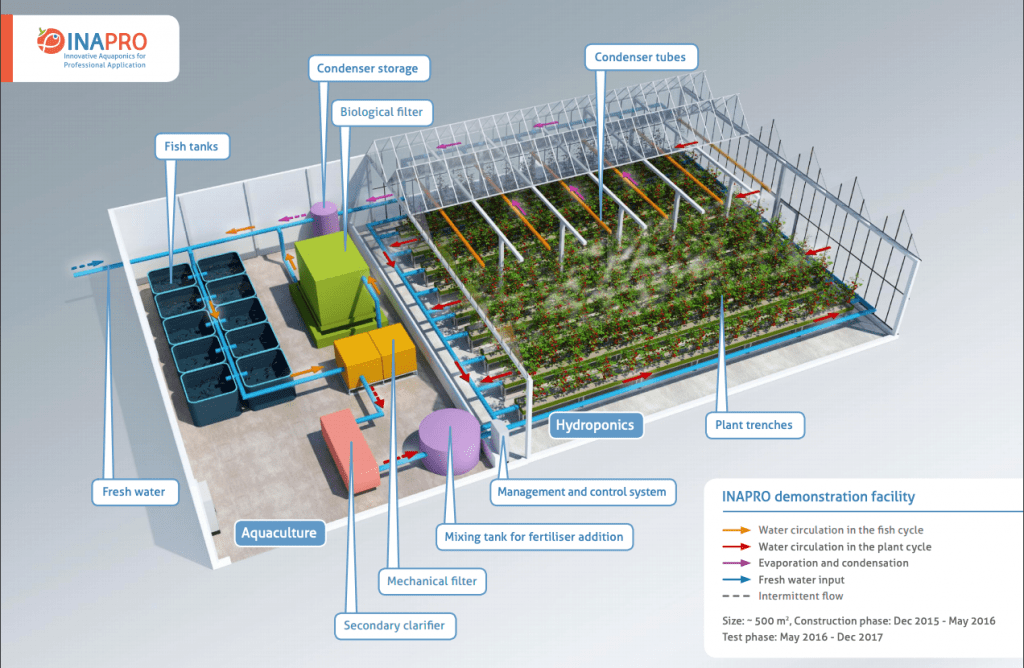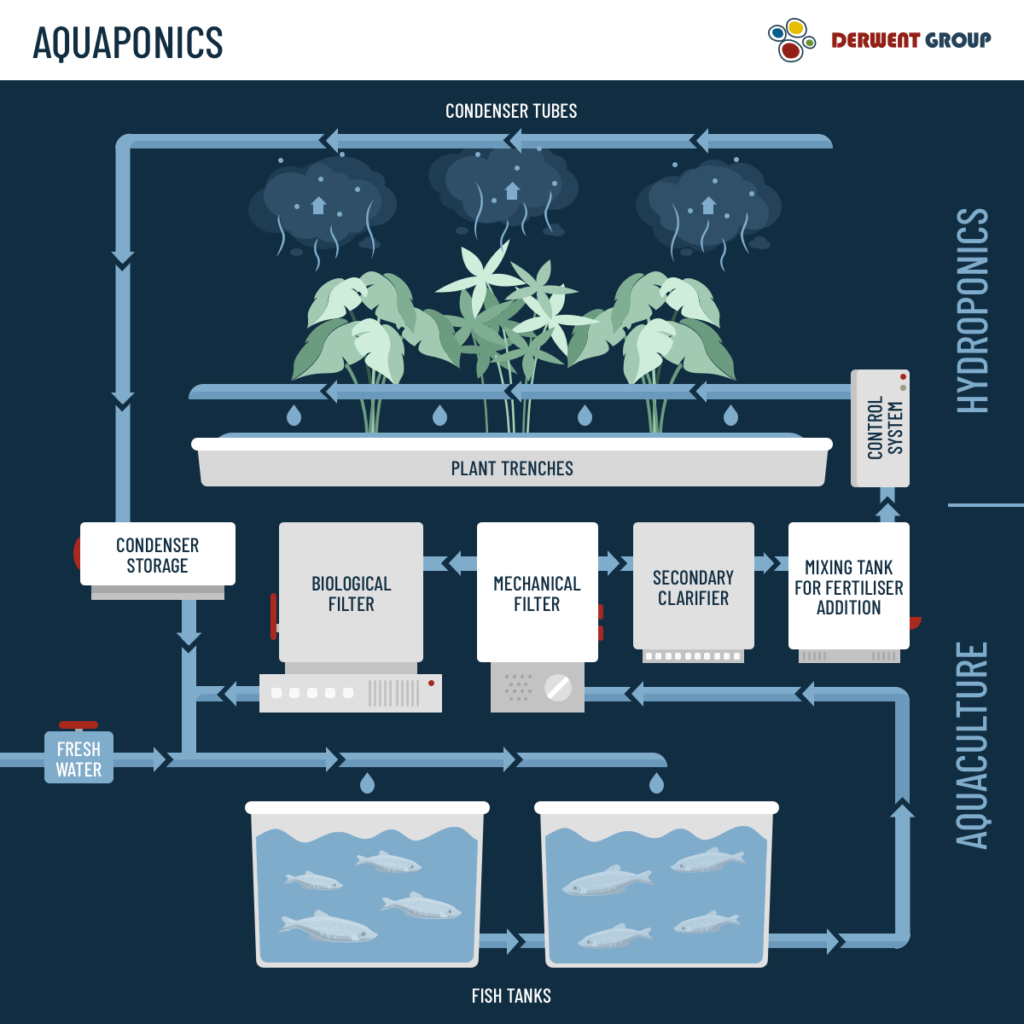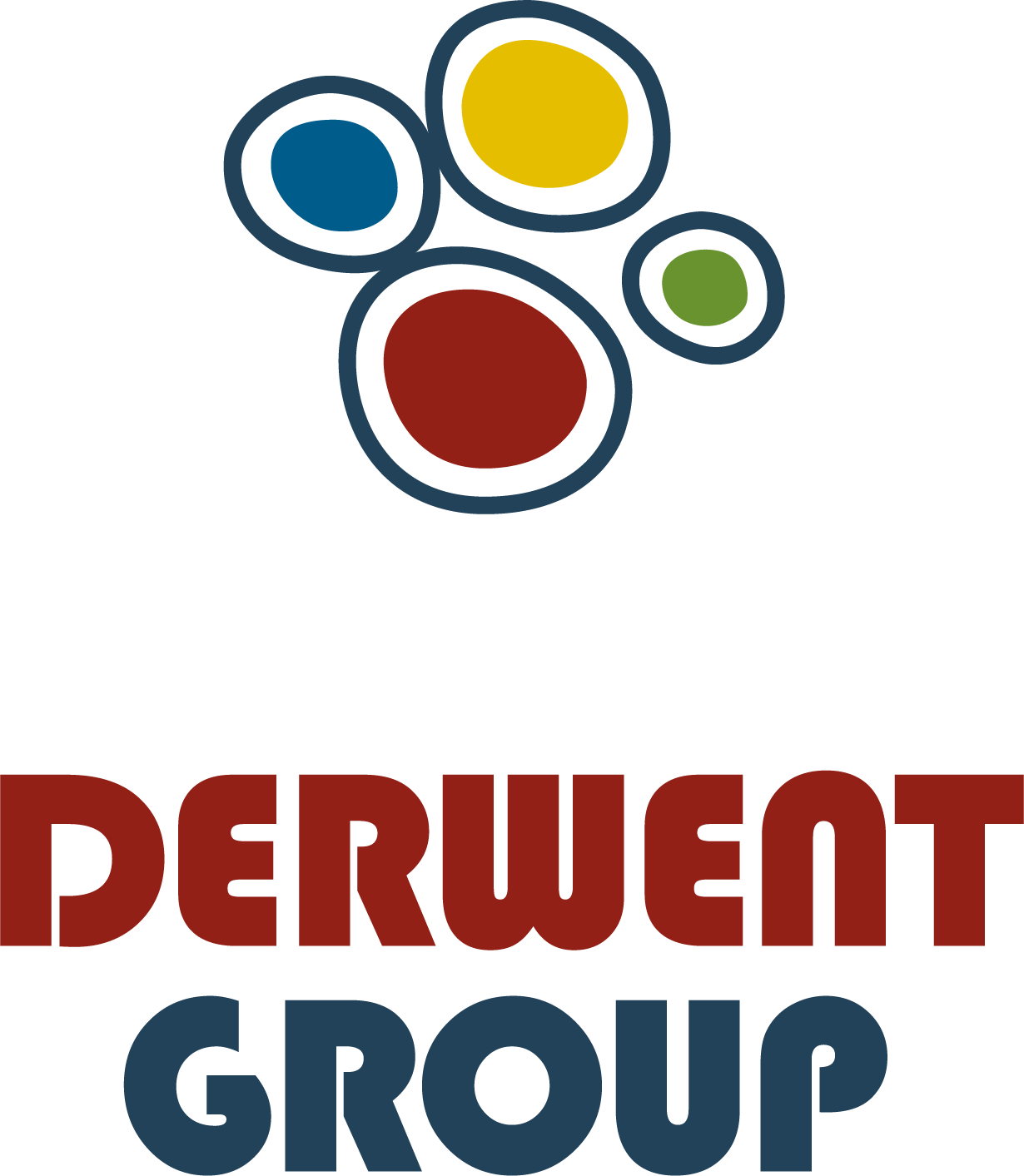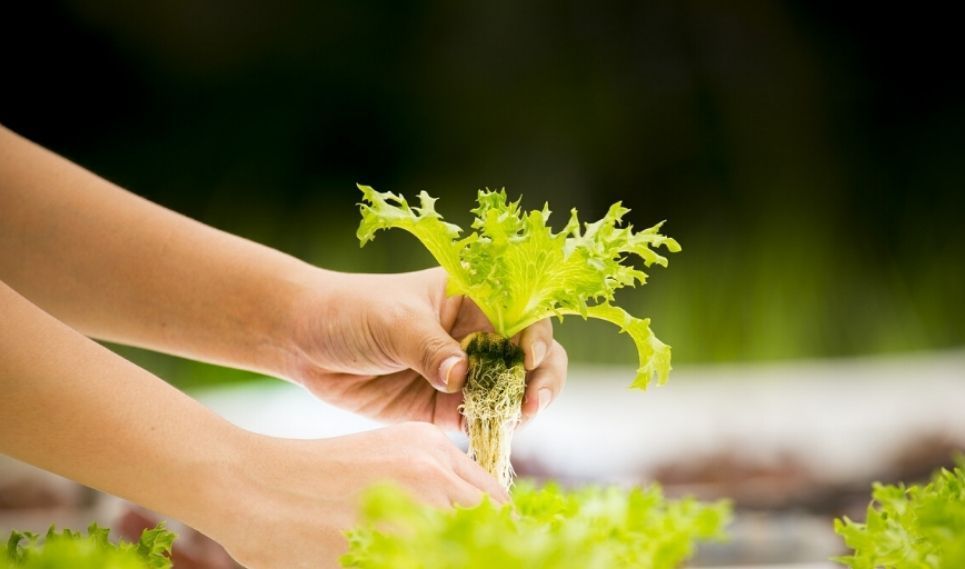The FAO defines separately the terms: aquaculture as the cultivation of aquatic organisms in both coastal and inland areas which implies intervention in the breeding process to increase production; and hydroponics as an agricultural production technique in which farming is carried out without soil and where the nutritional elements are delivered in a liquid solution.
Both farming techniques have been successfully used commercial for decades in their different variants.
The combination of the two techniques is known as aquaponics, which is the combination of aquaculture (fish farming) and hydroponics (growing plants in water without soil), and it is now when the potential has become a reality and a rising trend that are also called integrated agro-aquaculture (IAA) systems.
Currently closed recirculating systems (RAS in aquaculture and recirculating hydroponic systems) are the systems with the most benefits and the ones that will mark the future of aquaponics.
Aquaponics Advantages
Added to the most evident advantage of hydroponics, savings of 90% of water compared to conventional systems, are the advantages that each system offers separately such as less fertilizer use, less waste and by-products, less overexploitation of oceans or soil degradation.
In addition, as a combined system new benefits are generated such as the fact that fish debris fertilizes the water used to irrigate the plants, and the plants clean the water for the fish, establishing a win-win situation in which the capacity for production of food increases reducing the use of resources.

How aquaponic farms work
The operation of aquaponic farms is simple, in essence, it consists of one or several tanks for the fish, from there the water flow is taken to mechanical filtering equipment and then to a bio-filtering process and then passes to the hydroponic cultivation channels. This way metabolic waste generated by the fish can be used as nutrients for cultivating plants.
Aquaponics not only represents a complete source of high-quality food but also an opportunity to improve the socioeconomic conditions of human beings, contributing in turn to food safety and sovereignty.
From small units of rudimentary cultivation to the total development of 120 cultivation greenhouses in deep-water in Ethiopia, including urban aquaponics projects (Urban Farmers) in The Hague, aquaponics is coming into its own for the production of sustainable food anywhere.


